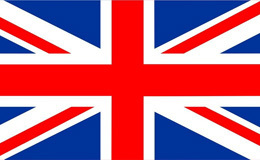See more categories+
21
2025
-
04
Understanding Single Phase Power Meters: A Comprehensive Guide
Single phase power meters are essential devices used in electrical systems to measure and monitor the consumption of electrical energy in residential and commercial settings. Unlike three-phase power systems, which are commonly used in industrial applications for their efficiency in handling large loads, single-phase systems are more straightforward and are typically found in homes and small busin
Author:
Single phase power meters are essential devices used in electrical systems to measure and monitor the consumption of electrical energy in residential and commercial settings. Unlike three-phase power systems, which are commonly used in industrial applications for their efficiency in handling large loads, single-phase systems are more straightforward and are typically found in homes and small businesses. Understanding how these meters work can provide valuable insights into energy management and efficiency.
A single phase power meter measures parameters such as voltage, current, and power factor to calculate the total power consumed over a given time period. The basic principle involves the use of Ohm’s Law and the relationship between voltage and current. By integrating these measurements, the meter can accurately report energy consumption, usually in kilowatt-hours (kWh), which is the standard unit for billing by utility companies.
The advantages of using a single phase power meter include their ease of installation and maintenance, as well as their ability to provide real-time monitoring of energy usage. This real-time data can be invaluable for identifying trends in energy consumption, detecting anomalies, and optimizing the performance of electrical systems. For instance, homeowners can track their usage patterns and make informed decisions about energy conservation, potentially leading to reduced utility bills.
In addition to basic energy measurement, many modern single phase power meters come equipped with advanced features such as digital displays, programmable settings, and communication interfaces. These enhancements allow users to connect the meter to a smart home system or energy management software, facilitating remote monitoring and automated alerts for unusual consumption patterns. This capability is particularly useful in promoting energy efficiency and sustainability efforts, as users can quickly identify and address issues that lead to unnecessary energy waste.
Single phase power meters are versatile and can be applied in various scenarios. From measuring the energy consumption of household appliances to monitoring the performance of HVAC systems in small commercial buildings, these devices serve a crucial role in ensuring efficient energy use. Additionally, as the demand for renewable energy sources increases, single phase power meters are often used in conjunction with solar energy systems to track energy generation and consumption accurately.
In conclusion, single phase power meters are indispensable tools within the electrical sector, providing essential data that helps individuals and businesses manage their energy consumption more effectively. By understanding how these meters function and the benefits they offer, users can make informed decisions that contribute to energy efficiency and cost savings in their everyday lives.
A single phase power meter measures parameters such as voltage, current, and power factor to calculate the total power consumed over a given time period. The basic principle involves the use of Ohm’s Law and the relationship between voltage and current. By integrating these measurements, the meter can accurately report energy consumption, usually in kilowatt-hours (kWh), which is the standard unit for billing by utility companies.
The advantages of using a single phase power meter include their ease of installation and maintenance, as well as their ability to provide real-time monitoring of energy usage. This real-time data can be invaluable for identifying trends in energy consumption, detecting anomalies, and optimizing the performance of electrical systems. For instance, homeowners can track their usage patterns and make informed decisions about energy conservation, potentially leading to reduced utility bills.
In addition to basic energy measurement, many modern single phase power meters come equipped with advanced features such as digital displays, programmable settings, and communication interfaces. These enhancements allow users to connect the meter to a smart home system or energy management software, facilitating remote monitoring and automated alerts for unusual consumption patterns. This capability is particularly useful in promoting energy efficiency and sustainability efforts, as users can quickly identify and address issues that lead to unnecessary energy waste.
Single phase power meters are versatile and can be applied in various scenarios. From measuring the energy consumption of household appliances to monitoring the performance of HVAC systems in small commercial buildings, these devices serve a crucial role in ensuring efficient energy use. Additionally, as the demand for renewable energy sources increases, single phase power meters are often used in conjunction with solar energy systems to track energy generation and consumption accurately.
In conclusion, single phase power meters are indispensable tools within the electrical sector, providing essential data that helps individuals and businesses manage their energy consumption more effectively. By understanding how these meters function and the benefits they offer, users can make informed decisions that contribute to energy efficiency and cost savings in their everyday lives.
Key words:
Related news


![[object Object] [object Object]](https://omo-oss-image.thefastimg.com/portal-saas/new2023080419495759710/cms/image/138ba837-b50d-4ff3-a73c-2e6a2379c522.jpg)







